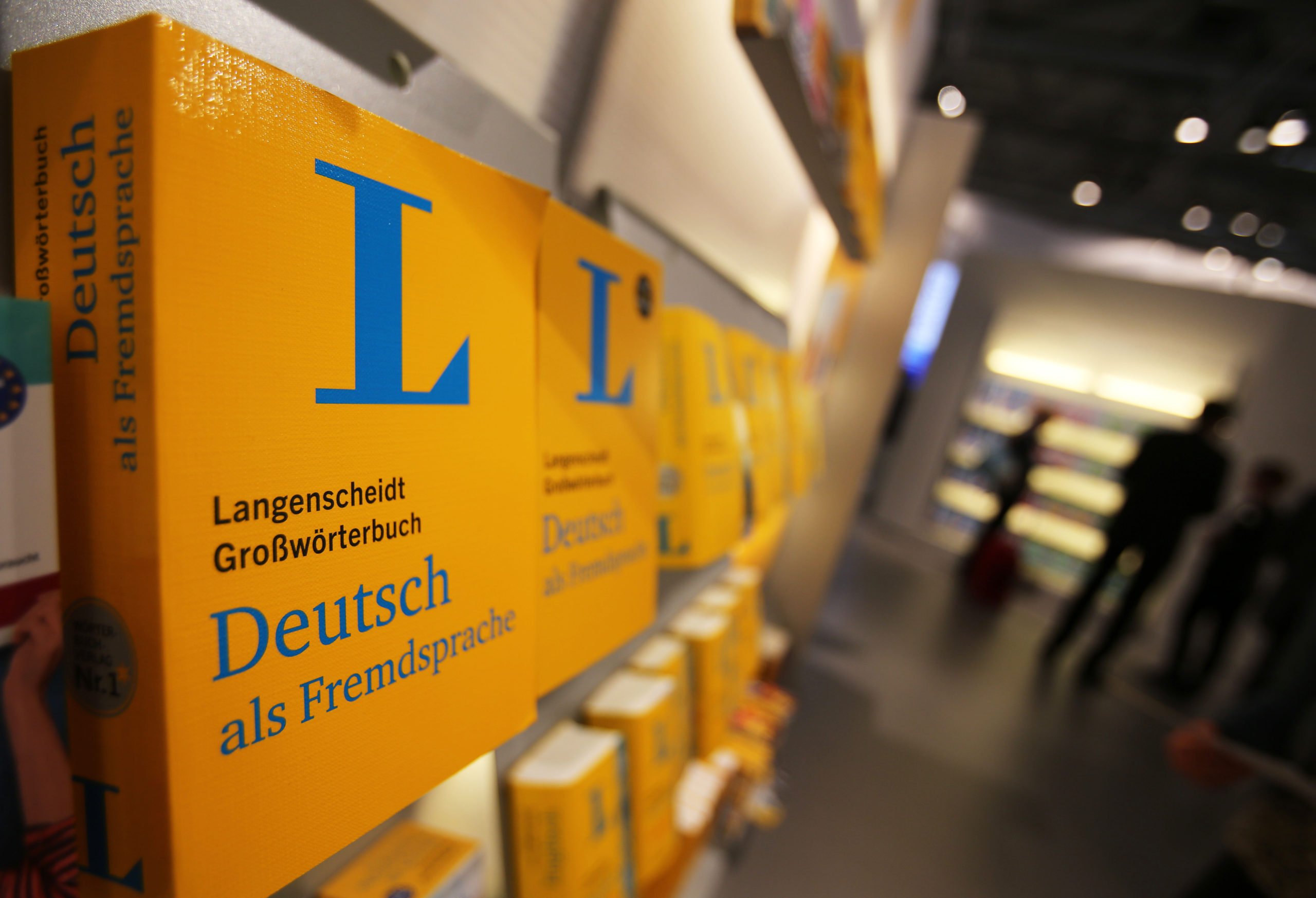You'll need this one in Germany for lots of reasons and, while it's not mandatory, most Germans would highly recommend you have it. What are we talking about? Yes, it's the good old (die) Privathaftpflichtversicherung - private liability insurance, the insurance that provides you cover for accidentally causing damage to other people or their things. You can read more about it here.
You know how it is when you're having a casual chat in the pub about banks and their exciting services and you want to spice the conversation up by finding an alternative word to the oh-so-pedestrian 'bank'? Of course you do. The word you need is (das) Finanzdienstleistungsunternehmen or financial services provider (or company). You're welcome.
Maybe you're trying to find out what's going on at the weekend or you're thinking of travelling to a different part of the country and looking for things to do. You might want to seek out (der) Veranstaltungsinformationsdienst or events information service.
Smokers and candle lovers probably have a few of these hanging around. Yes, (das) Streichholzschächtelchen is the word for a little matchbox. The item may be tiny, but the word is not. Plus it's super difficult for non-native speakers to pronounce. It sounds like this by the way.

You're bound to come across one or more of these in bureaucracy-heavy Germany. Meet the friendly - or not - (der) Sozialversicherungsfachangestellter or social security clerk.
And in case you fall foul of the law, you may want to get yourself some Rechtsschutzversicherung (legal expenses insurance) from (die) Rechtsschutzversicherunggesellschaft (legal expenses insurance company) to cover your costs.
If you employ staff or are an employee yourself, you'll probably be familiar with (das) Arbeiterunfallversicherungsgesetz or Workers' Compensation Insurance Act which regulates the country's compulsory occupational accident insurance.
Another day in Germany, another law. (Das) Steuervergünstigungsabbaugesetz is Germany's Tax Benefits Reduction Act. It came into force in 2003 and, unsurprisingly, seeks to reduce tax benefits and exemptions.
Rarely called by its full name, the BAföG, or (das) Bundesausbildungsförderungsgesetz, is Germany's Training Assistance Act and regulates state grants and interest-free loans for pupils and students at secondary school and university. The abbreviation BAföG is generally used to refer to the allowance students get rather than the law itself.
READ ALSO: 8 German tongue-twisters to leave your mouth in knots
This one's quite long in most languages and Germany's no exception. It's on people's radars more these days due to increased awareness: (die) Aufmerksamkeitsdefizit-Hyperaktivitätsstörung is German for ADHD or hyperactivity activity attention deficit disorder.
Are you, or do you know someone who is, gluten-intolerant or coeliac? Do you feel unwell if you drink dairy milk? Then you might need to know how to tell people that you have a Nahrungsmittelunvertraeglichkeit (die) or food intolerance. For extra points, gluten intolerance is (die) Glutenunverträglichkeit, coeliac disease is (die) Zöliakie and lactose intolerance is (die) Laktoseintoleranz or (die) Milchzucker-Unverträglichkeit.

And the medical among you may need to know the ins and outs of prescribing narcotics as outlined in Germany's (die) Betäubungsmittelverschreibungsverordnung or Narcotics Prescription Ordinance.
People can be really annoying and just wind you up. You might describe someone like that as having a Backpfeifengesicht (das) or a face you want to slap. Not that we'd ever condone violence. This is where German comes into its own with the easy creation of a single pithy word that English has to just describe.
What about the longest words to make into the dictionary?
The following are the top three in Germany's beloved Duden dictionary, although they're perhaps not the most useful.
Coming out on top with an exhausting 79 letters is (das) Rinderkennzeichnungsfleischetikettierungsüberwachungsaufgabenübertragungsgesetz. You're probably not going to need this one. This eight-words-in-one beast refers to a now-defunct law in Mecklenburg-Vorpommern that regulated the labelling of beef. Useful stuff.
Taking the silver is the more useful (die) Grundstücksverkehrsgenehmigungszuständigkeitsübertragungsverordnung, a regulation on the delegation of authority concerning land conveyance permissions. If you're buying property, you might need to know about that one.
In third place with a paltry 63 letters is (das) Rindfleischetikettierungsüberwachungsaufgabenübertragungsgesetz, a part of the above law, whose full name is Rinderkennzeichnungs- und Rindfleischetikettierungsüberwachungsaufgabenübertragungsgesetz. Phew.
Just for fun
Here are some less useful, but still rather satisfying ones you really don't need to know, but might want to anyway:
(Der) Maschendrahtzaun (wire mesh fence) is an oldie but goodie that was suddenly everywhere in the late 90s after comedian Stefan Raab used it in a song. The song was inspired by a brilliantly trivial complaint on the TV show Richterin Judge Salesch (a bit like Judge Judy) where the plaintiff was not best pleased because her neighbour's snowberry bush kept pushing against her 'chain link fence' as she referred to it. Again and again.
If you've always wanted to know how to say the captain of the Danube Steamboat Shipping Company (and why wouldn't you), we've got you: (der) Donaudamptschifffahrtsgesellschaftskapitän. Don't forget the triple f in the middle.
We'll end with Bodo Wartke and his tongue-twister rap that went viral: Barbaras Rhabarberbar. The absurd song tells the tale of Barbara and her ridiculously tasty rhubarb cake. It perfectly showcases the ease with which you can create pretty much any word you like in German, just by smushing nouns together.
New creations might not make it into the dictionary (yet), but you can have fun trying!
Have we missed any particularly good ones? Share your favourites with us in the comments.

Comments